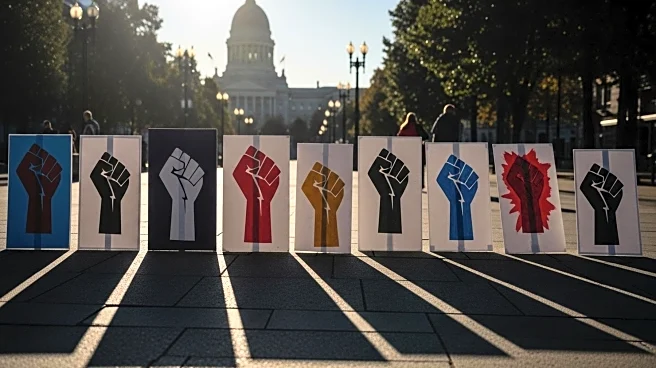What's Happening?
Thousands of protesters gathered in Washington, D.C., to march against President Trump's decision to deploy federal troops to the nation's capital. The 'We Are All D.C.' march, organized by a coalition including Free DC and the American Civil Liberties Union, aimed to oppose the federal incursion and protect home rule. The protest was sparked by Trump's declaration of a crime emergency in D.C., which led to increased federal law enforcement presence. Participants expressed concerns over the characterization of D.C. as a crime-ridden city and the potential expansion of federal troop deployment to other major cities.
Why It's Important?
The protest highlights significant opposition to federal intervention in local governance, raising concerns about civil liberties and the militarization of law enforcement. The deployment of federal troops in D.C. is seen by many as an overreach of executive power, potentially setting a precedent for similar actions in other cities. This situation underscores the tension between federal authority and local autonomy, with implications for how crime and public safety are managed across the U.S. The protest also reflects broader societal concerns about racial justice and the treatment of minority communities by law enforcement.
What's Next?
Organizers of the march hope to build a national coalition to resist federal troop deployments in other cities, such as Chicago and Baltimore. The protest may lead to increased advocacy and legal challenges against federal intervention in local policing. D.C. Mayor Muriel Bowser has already taken steps to oppose the federalization of D.C. police, including legal action. The situation may prompt further political and public discourse on the balance between federal and local control in addressing crime and public safety.
Beyond the Headlines
The protest raises ethical questions about the use of federal power in local jurisdictions and the potential impact on civil rights. It also highlights cultural dimensions, as the march included diverse groups advocating for immigrant rights and racial justice. The event may contribute to long-term shifts in public policy regarding law enforcement practices and the role of federal agencies in local matters.









